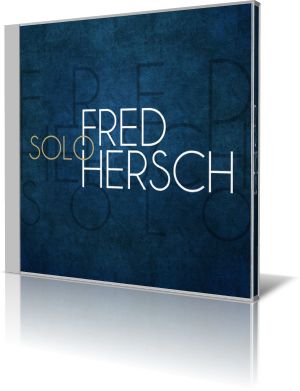|
The New York Times says Fred Hersch is a master who plays it his way:
“Mr. Hersch has honed a solo piano concept second to none in jazz.”
That’s it. Nothing else needs to be said. End of review. A listen to
Fred Hersch Solo (Palmetto Records, 2015), and one can see the
Times gets it right.
The album was recorded during an August 14, 2014, performance at Windham Civic Center Concert Hall in Windham, New York. A solitary instrumentalist playing a song that lasts more than five minutes – to say nothing of 10 – can be challenging to a listener used to pieces like that being produced by orchestras or big bands with multiple soloists. Hersch, however, makes it work with the opening track, a Jobim medley, “Olha Maria / O Grande Amor.” At more than 12 and ½ minutes, the music keeps moving, even though the mood and pace change here and there. And the style straddles that line between symphonic and jazz, similar to the sounds that come out of the Gershwin playbook. Hersch follows that up with an interesting take on Tizol’s “Caravan,” a song popularized by Duke Ellington. Hersch is clearly in his own element, taking the familiar and make it something completely off the charts, yet still recognizable. The set includes two original songs, “Pastorale,” which Hersch wrote in honor of Robert Schumann, and “Whirl,” for Suzanne Farrell. He also performs arrangements of “The Song Is You” by Jerome Kern, “In Walked Bud” by Thelonious Monk and “Both Sides Now” by Joni Mitchell. Born in Cincinnati, Hersch studied music theory and composition as an elementary schooler and sang in high school theater productions. He turned to jazz at Grinnell College, where he was introduced to the music of John Coltrane, Pharoah Sanders, Miles Davis and Chick Corea. His associations include Stan Getz, Lee Konitz, Art Farmer, Gary Burton, Toots Thielemans and more. Fred Hersch Solo is his 10th album as a leader, his fourth live recording. As with two of the others, the projected did not begin with the intent of commercial release. The performances were recorded for archival purposes, but after hearing them played back, he knew he had something rare. Knowing that he was “in the zone,” he decided to share those special moments
|


